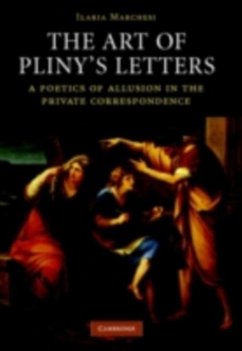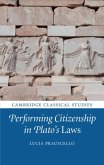In this book on intertextuality in Pliny the Younger, Professor Marchesi invites an alternative reading of Pliny's collection of private epistles: the letters are examined as the product of an authorial strategy controlling both the rhetorical fabric of individual units and their arrangement in the collection. By inserting recognisable fragments of canonical authors into his epistles, Pliny imports into the still fluid practice of letter-writing the principles of composition and organisation that for his contemporaries characterised other writings as literature. Allusions become the occasion for a metapoetic dialogue, especially with the collection's privileged addressee, Tacitus. An active participant in the cultural politics of his time, Pliny entrusts to the letters his views on poetry, oratory and historiography. In defining a model of epistolography alternative to Cicero's and complementing those of Horace, Ovid and Seneca, he also successfully carves a niche for his work in the Roman literary canon.
Dieser Download kann aus rechtlichen Gründen nur mit Rechnungsadresse in A, B, BG, CY, CZ, D, DK, EW, E, FIN, F, GR, HR, H, IRL, I, LT, L, LR, M, NL, PL, P, R, S, SLO, SK ausgeliefert werden.









